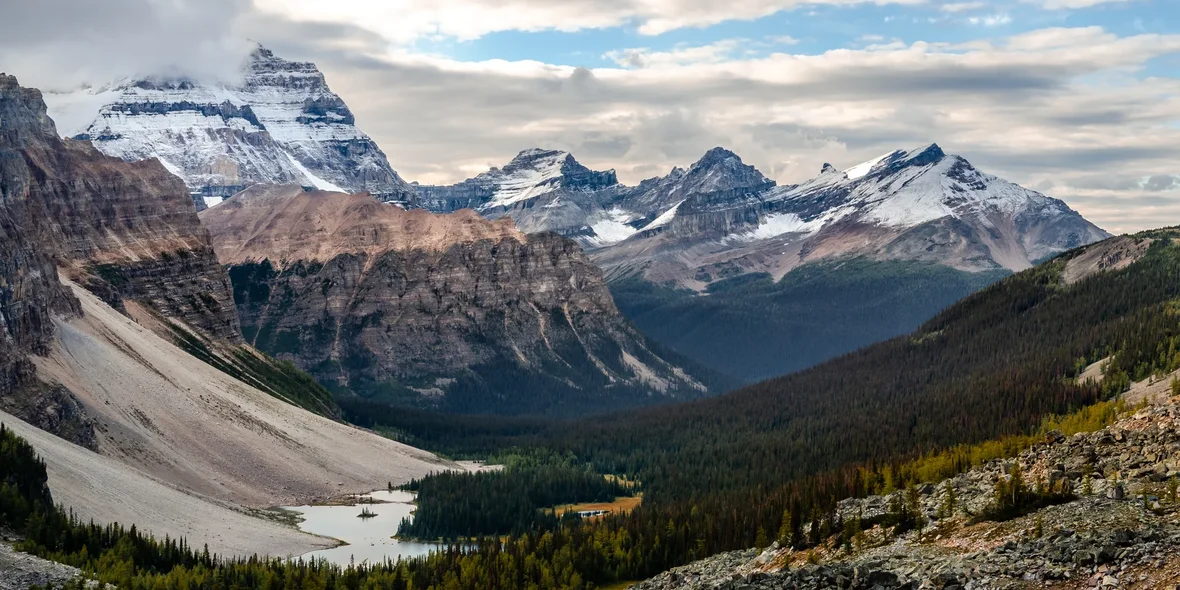
Top 25 Largest Landowners in the World
Land is distributed highly unevenly across the globe. Most major private landowners are concentrated in Australia, while institutional owners control vast territories through state and religious structures. In this article, we present up-to-date information on the world’s largest landowners in 2025.
General Context of Land Distribution
Key facts about land resources:
- The Earth’s total surface consists of 71% water and 29% land.
- Total land area: 36 billion acres (14.6 billion hectares).
- Usable land: 15 billion acres (6.1 billion hectares).
- On average, each person on the planet has about 2 acres (0.8 hectares) of land.
Top 5 Largest Landowners in the World
British Royal Family
Important clarification: the British Crown technically owns vast territories, but most of these lands are not the personal property of the royal family.
Crown Estate:
- Area: approximately 615,000 acres (248,000 hectares) in the UK.
- Managed by an independent commercial organization.
- Profits go to the state treasury, with the royal family receiving 25% as a «Sovereign Grant.»
Actual personal holdings of the royal family:
- Duchy of Lancaster (King Charles III): 44,748 acres (18,100 hectares).
- Duchy of Cornwall (Prince William): Approximately 133,000 acres (54,000 hectares).
- Private estates: Sandringham (20,000 acres), Balmoral (50,000 acres).
- Total personal ownership: approximately 250,000 acres (101,000 hectares).
Catholic Church
Area: 177 million acres (71.6 million hectares).
The Church owns:
- Temples and religious buildings worldwide.
- Educational institutions.
- Agricultural lands.
- Commercial real estate.
Inuit of Nunavut*
Area: 87.5 million acres (35.4 million hectares).
Rights granted under the Nunavut Land Claims Agreement of May 25, 1993 — the largest land agreement in Canadian history.
Gina Rinehart
Area: over 8.6 million hectares (21.3 million acres).
Net worth: AUD 46.34 billion (approximately USD 30 billion) as of 2025.
Australia’s richest woman owns:
- Mining operations through Hancock Prospecting.
- Over 20 cattle stations through S. Kidman & Co and Hancock Agriculture.
- A herd of over 150,000 cattle.
- 3.5 million hectares of agricultural land.
Recent acquisitions in 2025:
- Jindabyne Station in New South Wales for $35 million.
- Wirribilla Farm for $75 million.
- Three farms in Victoria’s Western District for $10 million.
Inuvialuit**
Area: 22.49 million acres (9.1 million hectares).
Territory secured under the Inuvialuit Final Agreement of June 5, 1984, covering lands in Northern Yukon and the Northwest Territories of Canada.
*Inuit: indigenous people living in Canada’s northern regions, including Nunavut, with a population of about 50,000. They traditionally engage in hunting, fishing, and gathering. Their culture includes unique art forms like bone carving and throat singing.
** Inuvialuit: a group of Inuit living in the Inuvialuit Settlement Region in northwest Canada, sharing similar cultural and linguistic characteristics with other Inuit.
Largest Private and Corporate Landowners
|
Owner |
Country |
Area (million acres/hectares) |
Main activity |
|
Gina Rinehart |
Australia |
21.3 / 8.6 |
Mining, cattle ranching |
|
Mudanjiang City Mega Farm |
China |
22.24 / 9.00 |
Dairy farming |
|
Australian Agricultural Company |
Australia |
16.4 / 6.62 |
Agriculture |
|
North Australian Pastoral Company |
Australia |
14.83 / 6.00 |
Cattle ranching |
|
Jumbuck Pastoral Company |
Australia |
14.21 / 5.75 |
Sheep farming |
|
Handbury Group |
Australia |
13.05 / 5.28 |
Mixed agriculture |
|
Williams Family |
Australia |
11.12 / 4.5 |
Cattle ranching |
|
Paraway Pastoral Company |
Australia |
10.87 / 4.39 |
Livestock farming |
|
Consolidated Pastoral Company |
Australia |
8.89 / 3.59 |
Cattle ranching |
|
Macdonald Family |
Australia |
8.30 / 3.35 |
Agriculture |
Comparison with the Largest Landowners in the USA
For comparison, the largest private landowners in the USA in 2025:
- Emmerson Family: 2.44 million acres (forestry).
- John Malone: 2.20 million acres (diversified assets).
- Ted Turner: 2.00 million acres (ranches, bison).
- Stan Kroenke: 1.76 million acres (ranches, sports).
- Reed Family: 1.66 million acres (forestry).
Characteristics of Private Lands
Most large private landholdings are in Australia, but they also exist in countries like China, Sweden, Russia, and South Africa. These lands are primarily used for agriculture.
Types of private lands:
- Family-owned: 1) family farms operated across generations; 2) mixed farms engaging in various agricultural activities.
- Corporate: 1) agribusiness companies producing food; 2) forestry corporations managing timber; 3) mining companies extracting minerals.
- Specialized: 1) dairy farms, e.g., Mudanjiang City Mega Farm; 2) sheep farms, e.g., Jumbuck Pastoral; 3) farms breeding elite livestock, e.g., the Hughes family.
Activities on these lands:
- Raising livestock and animals.
- Growing crops.
- Forestry.
- Mining.
- Mixed agriculture.
Recent trends in the sector:
- Active land consolidation in Australia by major players, especially Gina Rinehart.
- Growing interest from tech billionaires in U.S. agricultural lands.
- Increased investment in forestry as a hedge against inflation.
- Expansion of mega-farms in China to ensure food security.
Summary
Land resource distribution remains highly unequal. It’s crucial to distinguish between state-owned lands managed on behalf of nations (e.g., Crown Estate) and private ownership by individuals or corporations. The trend toward land consolidation continues, particularly in agriculture and forestry, reflecting both the investment appeal of land and the strategic importance of food security.
Data sources: The Land Report, Madison Trust, Forbes, Crown Estate, official Canadian government documents, corporate financial reports.
Frequently Asked Questions About the World's Largest Landowners
How much land is there on Earth, and how is it distributed?
The Earth’s surface consists of 71% water and 29% land. Of the 36 billion acres (14.6 billion hectares) of land, 15 billion acres (6.1 billion hectares) are usable. On average, each person has about 2 acres (0.8 hectares).
Who is the largest landowner in the world?
It’s important to distinguish between actual ownership and formal control:
Actual largest landowners:
- Catholic Church: 177 million acres (71.6 million hectares).
- Inuit of Nunavut: 87.5 million acres (35.4 million hectares).
- Inuvialuit: 22.49 million acres (9.1 million hectares).
The British royal family is formally linked to vast territories through Crown Land in Canada (approximately 890 million hectares), but these are state lands managed by the Canadian government, not personal property. The royal family’s actual personal holdings are about 250,000 acres (101,000 hectares).
What is the Catholic Church’s rank among landowners?
The Catholic Church is the largest non-state landowner globally, owning 177 million acres (71.6 million hectares).
Who is the largest private landowner?
Gina Rinehart, Australia’s richest woman, owns over 21.3 million acres (8.6 million hectares) as of 2025.
In which countries are most large private landholdings concentrated?
Most large private landholdings are in Australia, but they also exist in the USA, China, Sweden, Russia, and South Africa.
Author
I am responsible for editorial work. I write expert interviews and guides.


















